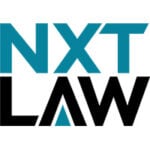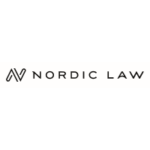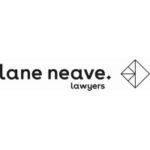-
Please provide a high-level overview of the blockchain market in your jurisdiction. In what business or public sectors are you seeing blockchain or other distributed ledger technologies being adopted?
El Salvador has undergone a profound and historic transformation through its early adoption of distributed ledger technologies (DLT). As the first country in the world to grant Bitcoin legal tender status in 2021 and later introduce a comprehensive Digital Assets Issuance Law in 2023, the country has laid the foundation for a robust and future-oriented digital economy.
Before this regulatory shift, the blockchain ecosystem worldwide faced major limitations. Across jurisdictions, companies struggled with regulatory uncertainty, restricted access to traditional financial systems, and an absence of legal recognition for digital asset activities. These conditions hindered growth and left both innovators and investors in a state of limbo.
El Salvador was the first country to take a definitive and comprehensive regulatory stance, establishing legal clarity for Bitcoin and digital assets while other nations remained cautious or undecided. This bold move positioned the country at the forefront of blockchain regulation, setting the stage for innovation to flourish under clear and supportive legal frameworks.
The results of this transformation are now visible across multiple sectors of the economy. In financial services, stablecoins, tokenized investment instruments, and blockchain-based payments are being developed and deployed. The real estate sector is tokenizing ownership structures and income-generating token models. In commodities, blockchain is enabling the tokenization of assets such as soy and coffee, improving both traceability and access to new markets. Even the public sector is examining blockchain’s potential for increasing transparency and enhancing citizen inclusion.
El Salvador’s regulatory approach has been both proactive and strategic. By combining legal certainty with fiscal incentives, the country has become a compelling destination for international blockchain companies and digital asset issuers. As a result, El Salvador is rapidly emerging as a global hub for tokenization and digital finance, with a framework built for scalability, compliance, and innovation.
-
Please outline the principal legislation and the regulators most relevant to the use of blockchain technologies in your jurisdiction. In particular, is there any blockchain-specific legislation or are there any blockchain-specific regulatory frameworks in your jurisdiction, either now or envisaged in the short or mid-term?
El Salvador has enacted two major pieces of legislation specifically designed for blockchain and digital assets. The first was the Bitcoin Law, passed in 2021, which recognized Bitcoin as legal tender and required its acceptance by economic agents, while also launching a government-backed wallet to support public adoption.
The second, more comprehensive regulation came in 2023 with the Digital Assets Issuance Law (LEAD). This law established an advanced regulatory regime for the issuance, registration, custody, trading, and certification of digital assets. The framework created by the Digital Assets Law excludes central bank digital currencies but recognizes a broad range of tokenized financial and economic instruments.
The law established a specialized regulator, the Comisión Nacional de Activos Digitales (CNAD), and introduced licensing for Digital Asset Service Providers (PSAD), as well as independent certification entities that ensure compliance and legitimacy of tokenized offerings. The framework is designed to promote innovation while offering legal certainty to issuers, service providers, and investors alike.
This regulation has allowed global entities such as Tether, Bitfinex Securities, and Binance to establish and operate within El Salvador under regulatory clarity. Industry analysts, including Coinhub, have recognized El Salvador’s legal framework as one of the most advanced and business-friendly regulatory environments for digital assets worldwide.
-
What is the current attitude of the government and of regulators to the use of blockchain technology in your jurisdiction?
The government of El Salvador is not only supportive of distributed ledger technologies (DLT); it is actively promoting their adoption and integration into the national economy. Unlike jurisdictions that have taken a reactive or restrictive stance, El Salvador has positioned itself as a global pioneer in blockchain regulation and innovation.
The passage of the Bitcoin Law in 2021 and the Digital Assets Issuance Law in 2023 reflects a clear political and regulatory will to embrace technological transformation. These laws are not merely symbolic; they are backed by the creation of robust institutions such as the Comisión Nacional de Activos Digitales (CNAD) and the licensing of Digital Asset Service Providers (PSADs), certifiers, and other ecosystem actors.
In practical terms, government agencies across different sectors — including finance, investment, trade, and innovation — are open to collaboration with companies in the blockchain space. There is a strong culture of facilitation and dialogue between regulators and industry participants, designed to ensure both compliance and growth. Regulatory procedures have been intentionally streamlined to encourage responsible innovation and attract international investment.
El Salvador’s stance is best described as one of strategic leadership. By combining regulatory clarity with institutional support and fiscal incentives, the country has created an environment where blockchain and digital asset companies are not only welcomed but actively supported in their development and expansion.
-
Is there a central bank digital currency (‘CBDC’) project in your jurisdiction? If so, what is the status of the project?
No, there is currently no active or publicly confirmed CBDC project in El Salvador. While the central bank is supportive of digital payments and exploring broader digital infrastructure, the country has not yet launched or piloted a central bank digital currency.
El Salvador’s focus has instead been on enacting the Bitcoin Law (2021) and the Digital Assets Issuance Law (2023), creating one of the world’s most advanced legal frameworks for private digital assets.
The government and regulators are acting as enablers of innovation rather than issuing a statebacked digital currency themselves.
-
What is the current approach in your jurisdiction to the treatment of cryptoassets and decentralised finance (‘DeFi’) for the purposes of financial regulation?
El Salvador’s regulatory framework takes a functional and classification-based approach to cryptoassets and decentralized finance (DeFi), focusing on the legal nature of the asset and its economic purpose rather than the underlying technology alone.
Under the Digital Assets Issuance Law (2023), the issuance and commercialization of cryptoassets — including stablecoins, utility tokens, and financial instruments — must follow a clearly defined legal structure. Token issuers are required to obtain certification, submit offering documentation, and operate within the compliance parameters established by the Comisión Nacional de Activos Digitales (CNAD). Digital Asset Service Providers (PSADs) must also be licensed and meet ongoing regulatory obligations.
In terms of DeFi, while the law does not regulate individual smart contracts or protocols directly, any entity facilitating token sales, offering financial products, or providing asset custody in a decentralized or hybrid manner must comply with the established legal framework. This ensures that even innovative or permissionless models are held to standards of transparency, investor protection, and anti-money laundering (AML) compliance.
El Salvador’s approach is technology-neutral yet risk-aware, enabling emerging models like DeFi to develop responsibly within a regulated sandbox environment. By combining flexibility with accountability, the country aims to maintain legal integrity while encouraging innovation in the evolving digital finance ecosystem.
-
What is the current approach in your jurisdiction to the treatment of cryptoassets and DeFi for the purposes of anti-money laundering and sanctions?
El Salvador’s approach to anti-money laundering (AML) and sanctions compliance in the digital asset space is integrated into its broader financial regulatory strategy. The Digital Asset Issuance Law and its supporting regulations require issuers, service providers, and platform operators to adhere to strict know-your-customer (KYC) and AML obligations, aligned with international standards, particularly those set by the Financial Action Task Force (FATF).
Entities operating under the law must implement robust due diligence procedures, maintain transaction records, and report suspicious activities. The National Commission of Digital Assets (CNAD) works in coordination with El Salvador’s Financial Investigation Unit (FIU) to ensure that all actors in the ecosystem comply with applicable AML/CFT (Counter Financing of Terrorism) frameworks.
Additionally, service providers such as exchanges, wallets, and tokenization platforms are obligated to screen transactions against international sanctions lists and uphold risk-based compliance programs. The goal is to maintain transparency and prevent illicit use of cryptoassets without stifling innovation in the DeFi sector.
-
What is the current approach in your jurisdiction to the treatment of cryptoassets and DeFi for the purposes of taxation?
Under the 2023 Digital Assets Issuance Law (DAIL), there are clear incentives for companies operating in the digital assets space, including significant tax exemptions.
Specifically, digital asset issuances that are registered under the CNAD (Comisión Nacional de Activos Digitales) may benefit from exemptions on income tax, capital gains tax, and municipal taxes for a defined period. This makes El Salvador one of the most tax-efficient jurisdictions globally for companies looking to issue or trade tokenized assets.
For individuals and entities not operating under the CNAD framework, standard tax rules may still apply, although current practice suggests that gains from digital assets held for personal investment purposes are not heavily taxed. That said, the regulatory authorities continue to work on developing clearer guidance for DeFi protocols, staking, yield farming, and other emerging use cases.
As the ecosystem matures, further updates to the fiscal code may clarify the treatment of crypto-related income for both businesses and individuals, but the current legal environment signals a strong intention to remain competitive and innovation-friendly.
-
Are there any prohibitions on the use or trading of cryptoassets in your jurisdiction? If permitted, is cryptoasset trading common?
There are no prohibitions on the use or trading of cryptoassets in El Salvador. On the contrary, the country has embraced a pro-innovation stance toward blockchain technologies and digital assets.
Under the Ley de Emisión de Activos Digitales (Digital Asset Issuance Law), digital assets must be backed by an underlying asset or right and meet specific legal and technical criteria. The Comisión Nacional de Activos Digitales (CNAD), the regulatory body overseeing this market, plays a key role in evaluating and authorizing these issuances.
Despite the openness of the legal framework, the regulatory standards are rigorous. According to public statements from the President of CNAD, over 80% of the applications submitted for digital asset certification are rejected. This is due to the fact that many do not meet the legal requirements or fail to present a clear asset-backed structure. This reflects the Commission’s commitment to ensuring only serious, well-structured projects enter the market. The only limitation now in place is the restriction to pay any government tariffs services or tax with bitcoin.
-
To what extent have initial coin offerings (‘ICOs’) taken place in your jurisdiction and what has been the attitude of relevant authorities to ICOs? If permissible, what are the key requirements that an entity would need to comply with when launching an ICO?
El Salvador no longer uses the generic “ICO” label. Token launches proceed as public or private offerings under the Digital Assets Issuance Law (LEAD) and its regulations. Several offerings have already been cleared, including the state’s “Volcano Bond” and private tokenizations (e.g., agro-commodities), confirming an active, regulated market under CNAD.
For a public offer, the issuer must meet eligibility, appoint a registered structurer, file a Documento de Información Relevante (DIR) with an independent certifier’s report, obtain CNAD habilitation/registration, and place/trade through licensed PSADs. Private offers are structured by a registered structurer and addressed to no more than 50 qualified investors, with streamlined documentation. Certifiers must be independent of intermediaries.
Bottom line: launches are permitted but highly structured, with prospectus-style disclosure, third-party certification, licensed intermediaries, and swift yet formal CNAD approvals—rather than unregulated “ICOs.”
-
Are there any legal or regulatory issues concerning the transfer of title to or the granting of security over cryptoassets?
Yes, there are legal and regulatory considerations around transfers and security over digital assets, but only those assets lawfully issued, certified, and registered under LEAD are eligible for title transfer and pledging in a legally enforceable way. Assets that remain outside this framework must navigate more legal uncertainty.
-
How are smart contracts characterised within your legal framework? Are there any enforceability issues specific to the operation of smart contracts which do not arise in the case of traditional legal contracts?
Under El Salvador’s Digital Assets Law (LEAD), smart contracts are implicitly recognized as integral components in the issuance, registration, and operation of digital assets. The law mandates that all digital asset issuances include technological infrastructure that may involve the use of smart contracts, particularly for automating processes such as token transfers, rights management, and investor interactions.
Although the law does not define smart contracts as a distinct legal figure separate from traditional contracts, it treats them as valid instruments provided they comply with the general principles of contract law and the technical standards set by the Comisión Nacional de Activos Digitales (CNAD). Therefore, enforceability is tied to whether the smart contract reflects a legally valid agreement between the parties, respects applicable contractual norms, and adheres to the technological compliance required by CNAD.
No express prohibitions exist against their use, and no specific enforceability issues have been introduced beyond those present in traditional legal agreements. However, to be deemed enforceable, smart contracts must be tied to an underlying asset and properly documented as part of a legally certified issuance process.
-
How are Decentralised Autonomous Organisations (‘DAOs’) treated in your jurisdiction?
El Salvador’s Digital Assets Issuance Law (LEAD) does not expressly recognise DAOs as a legal person or regulated category. The framework is built around identifiable actors—issuers, Digital Asset Service Providers (PSADs), certifiers and trading venues—subject to supervision by the CNAD. Accordingly, a DAO’s use of smart-contract governance does not, by itself, satisfy registration, licensing, AML/CFT or disclosure obligations where its activities fall within the LEAD (e.g., issuing or offering tokens, custody or intermediation). In practice, DAOs seeking to operate in El Salvador typically adopt a hybrid structure—most commonly a locally registered company or foundation (or an appointed operating entity)—to interface with regulators, hold rights and obligations, enter contracts, and assume compliance responsibilities. Absent such a wrapper, participants may face uncertainty on liability and enforceability. The upshot: DAOs are not prohibited, but to access the regulated perimeter they need a recognised legal vehicle and must comply with the same prudential, disclosure and AML standards as centralised actors.
-
Have there been any governmental or regulatory enforcement actions concerning blockchain in your jurisdiction?
To date, El Salvador has not undertaken any major enforcement actions against blockchain-related entities under its digital asset framework. Instead, the government has taken a proactive and collaborative regulatory approach, focusing on establishing clear rules rather than punitive measures.
The Ley de Emisión de Activos Digitales (Digital Asset Issuance Law), enacted in January 2023, created a transparent regulatory regime overseen by the Comisión Nacional de Activos Digitales (CNAD). The CNAD’s role emphasizes authorization, certification, and supervision of issuances rather than enforcement through sanctions.
That said, compliance obligations are enforced through licensing and reporting mechanisms:
- Entities operating as issuers, service providers, or certifiers must obtain registration and comply with AML/KYC and reporting duties.
- CNAD retains authority to suspend or revoke licenses in cases of non-compliance, though no public record of such actions has been issued as of today.
Overall, El Salvador’s posture has been development-driven and facilitative, aiming to attract responsible innovation while maintaining investor protection and financial integrity.
-
Are there any other generally-applicable laws, case law or regulations that may present issues for the use of blockchain technology (such as privacy and data protection law or insolvency law)?
Yes. While El Salvador has adopted specific legislation to govern digital assets through the Ley de Emisión de Activos Digitales (Digital Asset Issuance Law), several other generally applicable legal frameworks remain relevant to blockchain operations and may present compliance considerations:
- Data Protection and Privacy:
The Ley de Protección de Datos Personales (Personal Data Protection Law) establishes requirements for the collection, storage, and processing of personal information. Blockchain systems that store identifiable data must ensure compliance with data minimization principles and provide mechanisms for data subject rights, which can be complex in immutable ledgers. - Anti-Money Laundering (AML) and Counter-Terrorism Financing (CTF):
The Ley Contra el Lavado de Dinero y de Activos and the CNAD’s own regulatory framework impose KYC/AML requirements on service providers and token issuers. These obligations apply regardless of whether transactions are executed on-chain or off-chain. - Commercial and Insolvency Law:
General commercial and bankruptcy laws continue to apply to entities issuing or managing digital assets. Tokenized instruments may be considered part of an entity’s assets or liabilities in insolvency proceedings, which raises questions of creditor priority and asset recovery that have not yet been tested in Salvadoran courts. - Tax Regulations:
While the Digital Asset Issuance Law provides tax exemptions for specific digital asset activities (e.g., on capital gains, nominal value, and yield), entities must still comply with general tax obligations such as VAT and income tax when operating beyond the scope of digital asset issuance.
At present, there is limited case law addressing blockchain-specific disputes in El Salvador. However, the existing legal framework is designed to integrate digital asset activity within the broader principles of commercial, financial, and data protection law, minimizing potential conflicts while offering legal certainty for businesses.
- Data Protection and Privacy:
-
Are there any other key issues concerning blockchain technology in your jurisdiction that legal practitioners should be aware of?
Yes. Legal practitioners should be aware of several key developments and considerations that make El Salvador a unique jurisdiction for blockchain regulation and business operations:
- Comprehensive Regulatory Framework:
El Salvador stands out as the first country with a complete legal and institutional framework for digital assets through the Ley de Emisión de Activos Digitales (LEAD) and the Comisión Nacional de Activos Digitales (CNAD). Practitioners should understand the distinctions between issuers, service providers, and certifiers, as each carries different licensing, disclosure, and compliance requirements. - Tax Incentives and Structuring Opportunities:
The LEAD grants broad tax exemptions on digital asset issuances — including exemptions on capital gains, nominal value, and yields — which makes El Salvador highly competitive compared to traditional financial hubs such as Cayman, Luxembourg, or Panama. Lawyers advising foreign entities can leverage these incentives to structure efficient financing or investment vehicles under Salvadoran law. - Integration with Global AML/KYC Standards:
Although El Salvador promotes innovation, it maintains strict adherence to international anti-money laundering standards. Legal practitioners should ensure that blockchain-based projects align with the guidelines of the Unidad de Investigación Financiera (UIF) and CNAD’s AML/KYC framework. - Evolving Secondary Market Regulation:
While the primary issuance of digital assets is already regulated, the development of secondary trading frameworks (e.g., token exchanges, DeFi interfaces, and custody mechanisms) remains an area of ongoing policy design. Legal professionals should stay alert to new CNAD guidance on digital asset trading and reporting. - Interdisciplinary Approach:
Blockchain regulation in El Salvador requires collaboration between legal, financial, and technological experts. Practitioners advising clients in this sector must be equipped to interpret smart contracts, understand blockchain infrastructure, and integrate traditional compliance tools into tokenized structures.
In summary, El Salvador provides a clear and business-friendly regulatory environment that encourages blockchain innovation while ensuring legal certainty. The key for practitioners is to combine regulatory expertise with technological understanding to navigate this rapidly evolving field effectively.
- Comprehensive Regulatory Framework:
El Salvador: Blockchain & Crypto Assets
This country-specific Q&A provides an overview of Blockchain & Crypto Assets laws and regulations applicable in El Salvador.
-
Please provide a high-level overview of the blockchain market in your jurisdiction. In what business or public sectors are you seeing blockchain or other distributed ledger technologies being adopted?
-
Please outline the principal legislation and the regulators most relevant to the use of blockchain technologies in your jurisdiction. In particular, is there any blockchain-specific legislation or are there any blockchain-specific regulatory frameworks in your jurisdiction, either now or envisaged in the short or mid-term?
-
What is the current attitude of the government and of regulators to the use of blockchain technology in your jurisdiction?
-
Is there a central bank digital currency (‘CBDC’) project in your jurisdiction? If so, what is the status of the project?
-
What is the current approach in your jurisdiction to the treatment of cryptoassets and decentralised finance (‘DeFi’) for the purposes of financial regulation?
-
What is the current approach in your jurisdiction to the treatment of cryptoassets and DeFi for the purposes of anti-money laundering and sanctions?
-
What is the current approach in your jurisdiction to the treatment of cryptoassets and DeFi for the purposes of taxation?
-
Are there any prohibitions on the use or trading of cryptoassets in your jurisdiction? If permitted, is cryptoasset trading common?
-
To what extent have initial coin offerings (‘ICOs’) taken place in your jurisdiction and what has been the attitude of relevant authorities to ICOs? If permissible, what are the key requirements that an entity would need to comply with when launching an ICO?
-
Are there any legal or regulatory issues concerning the transfer of title to or the granting of security over cryptoassets?
-
How are smart contracts characterised within your legal framework? Are there any enforceability issues specific to the operation of smart contracts which do not arise in the case of traditional legal contracts?
-
How are Decentralised Autonomous Organisations (‘DAOs’) treated in your jurisdiction?
-
Have there been any governmental or regulatory enforcement actions concerning blockchain in your jurisdiction?
-
Are there any other generally-applicable laws, case law or regulations that may present issues for the use of blockchain technology (such as privacy and data protection law or insolvency law)?
-
Are there any other key issues concerning blockchain technology in your jurisdiction that legal practitioners should be aware of?




















